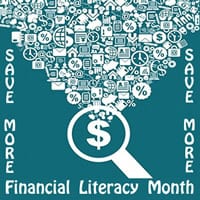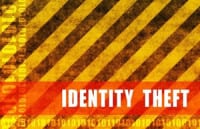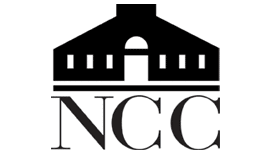April is Financial Literacy Month and I want to spread the word so that everyone can understand and improve their finances.
For the month of April, we will be posting daily tips from my book Thrive In Five: Take Charge of Your Finances in 5 Minutes a Day on Twitter, LinkedIn and my Facebook Fan Page. We need you to share and repost to your connections and friends so that these simple tips spread across the internet. My goal is to increase my exposure and therefore increase the number of people who improve their finances.
 First, remember to connect with me through social media – Twitter, LinkedIn and Facebook Fan Page, or you can forward this blog post to your family and friends for them to sign up for the newsletter. Thank you for spreading the word.
First, remember to connect with me through social media – Twitter, LinkedIn and Facebook Fan Page, or you can forward this blog post to your family and friends for them to sign up for the newsletter. Thank you for spreading the word.
We want everyone to have some extra cash this April, so let’s make it rain by sharing financial information that really works.
To purchase a copy of either of my books Thrive In Five: Take Charge of Your Finances in 5 Minutes a Day or 111 Ways To Save
Watch for my first post on April 1st. 🙂
#JillRussoFoster #30WaysToSave


 an easy target.
an easy target. College (Norwalk CT):
College (Norwalk CT):
